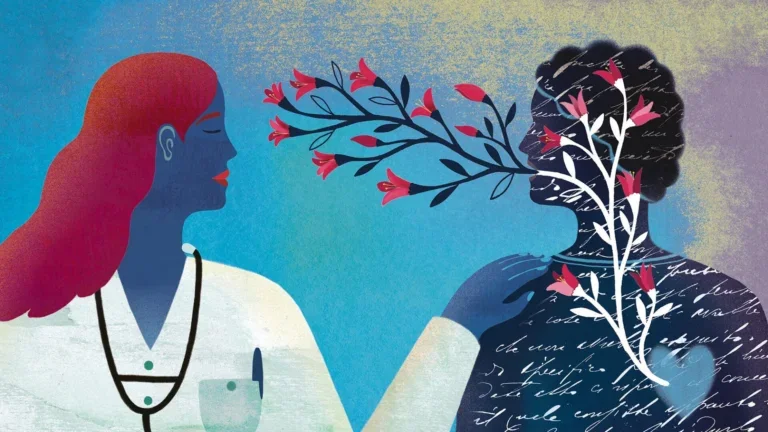
Going beyond the diagnosis, narrative medicine can transform patient care
When Pamela Schaff ’19, director of USC’s Master of Science in Narrative Medicine Program, was working toward her PhD in literature and creative writing at USC Dornsife, she studied the complex ways in which Henry James depicted relationships between characters in his novels. Schaff says the close reading of such texts during her doctoral research enhanced her clinical skills, as well as her ability to interpret the joys and struggles of her patients, and to act on their behalf — two key areas of practice that narrative medicine aims to bolster.
Students in the Narrative Medicine Program learn that the ancient medical tradition of beginning an examination by “taking a history” to understand a patient’s story does not account for what happens during the clinical encounter. There is a key distinguishing factor when practicing narrative medicine called “narrative humility.” The concept recognizes that a patient’s story is not one that can be mastered but instead is dynamic and requires listeners to reflect on what they bring to an encounter. It also requires them to be open to the transformation that occurs when we hear another’s story.